 W
WPiotr Adamczyk is a Polish actor.
 W
WMikhail Fyodorovich Astangov, pseudonym of M.F. Ruzhnikov (Ружников) was a Soviet actor, and an acclaimed People's Artist of the USSR (1955).
 W
WMateusz Banasiuk is a Polish actor. He appeared in more than sixteen films since 2004.
 W
WStanisław Sylwester Bareja was a Polish filmmaker. Some of his films have reached cult status in Poland.
 W
WArkadiusz Bogusław Bazak is a Polish actor. He has appeared in more than 40 films and television shows since 1964.
 W
WAndrzej Bogucki was a Polish television, stage and film actor, as well as operetta singer and songwriter, sometimes referred to as "The Polish Chevalier".
 W
WFeliks Chmurkowski was a Polish film actor. He appeared in more than 30 films between 1933 and 1971.
 W
WMateusz Damięcki is a Polish actor. He has appeared in more than 30 films and television shows since 1993.
 W
WBogumil Dawison was a Polish-born German actor.
 W
WTheodor Döring was a German actor.
 W
WJerzy Duszyński was one of the most popular actors in a post-war Poland. He starred in a number of film productions as well as theatrical plays.
 W
WSebastian Fabijański is a Polish film, TV and theatre actor.
 W
WAdam Ferency is a Polish actor. He has appeared in more than 70 films and television shows since 1976. He starred in the 1990 film Burial of a Potato, which was screened in the Un Certain Regard section at the 1991 Cannes Film Festival.
 W
WTadeusz Fijewski was a Polish stage and film actor. He appeared in 50 films between 1927 and 1978.
 W
WHenryk Julian Gołębiewski is a Polish actor. He is best known for his role in the film Edi (2002), for which he received a Polish Academy Award for Best Actor nomination.
 W
WWładysław Grabowski was a Polish film actor. He appeared in more than 35 films between 1911 and 1957.
 W
WTadeusz Janczar was a Polish film actor. He appeared in 26 films between 1952 and 1983.
 W
WJarosław Aleksander Kaczyński is a Polish politician and lawyer who is currently serving as leader of the Law and Justice party, which he co-founded in 2001 with his twin brother, Lech Kaczyński, who served as president of Poland until his death in 2010.
 W
WLech Aleksander Kaczyński was a Polish lawyer and politician who served as the Mayor of Warsaw from 2002 until 2005, and as the President of Poland from 2005 until his death in 2010. Before his tenure as president, he previously served as President of the Supreme Audit Office from 1992 to 1995 and later Minister of Justice and Public Prosecutor General in Jerzy Buzek's cabinet from 2000 until his dismissal in July 2001.
 W
WZdzisław Karczewski was a Polish film actor. He appeared in more than 30 films between 1933 and 1970.
 W
WKrzysztof Kiersznowski is a Polish actor. He has appeared in more than 60 films and television shows since 1993.
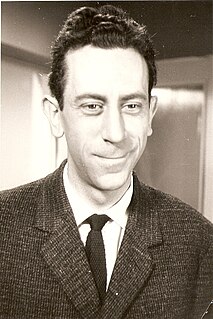 W
WJan Kobuszewski was a Polish actor and comedian.
 W
WMarian Kociniak was a Polish film and theatre actor, most notable for appearing in the 1970 film How I Unleashed World War II.
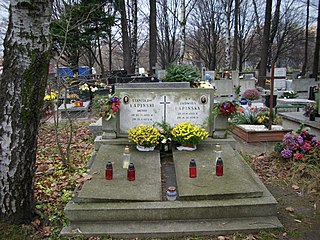 W
WStanisław Łapiński was a Polish film actor. He appeared in more than 20 films between 1931 and 1966.
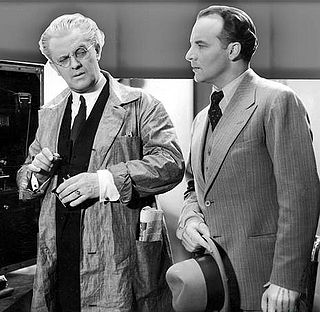 W
WJerzy Leszczyński (1884–1959) was a Polish stage and film actor. Both his parents Bolesław Leszczyński and Honorata Leszczyńska were noted stage actors of the nineteenth century.
 W
WZdzisław Maklakiewicz was a Polish actor. He was the nephew of composers Jan and Tadeusz Maklakiewicz.
 W
WWiesław Michnikowski was a Polish stage, cabaret, and film actor.
 W
WMaciej Musiał is a Polish actor, voice actor, producer, and television personality.
 W
WLeon Stanisław Niemczyk was a Polish actor.
 W
WTadeusz Olsza, born Tadeusz Blomberg, was a Polish film and stage actor, cabaret singer, dancer and director born in Warsaw. From 1915 to 1917, he taught vocal classes at Warsaw Conservatory. Starting in 1921 he performed in such Warsaw cabarets and vaudevilles as Stańczyk, Karuzela, Nietoperz, Stara Banda, Qui Pro Quo, Perskie Oko, Morskie Oko, Nowości, and Cyruliku Warszawskim. He was known for his parody of Felicjan Sławoj Składkowski, a Polish physician, general and politician.
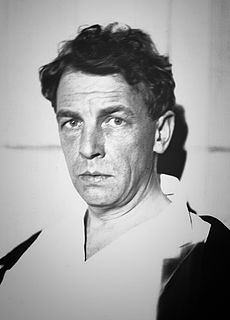 W
WJuliusz Osterwa, born Julian Andrzej Maluszek, was a renowned Polish actor, theatre director and art theoretician active in the interwar period. He was the founder of Theatre Reduta, the first experimental stage in Warsaw following Poland's return to independence at the end of World War One. Osterwa began his Warsaw career at the age of 33 by staging the works of Poland's revolutionary dramatists including Juliusz Słowacki, Stanisław Wyspiański, Stefan Żeromski, Jerzy Szaniawski, Kazimierz Przerwa-Tetmajer, and Cyprian Norwid. This team was commonly known as the actor's commune, resembling an ascetic monastery devoted to spiritual practice.
 W
WMarek Perepeczko was a popular Polish movie and theatrical actor.
 W
WWojciech Pokora was a Polish actor. He has made over 40 appearances in film and television. He starred in the 1986–1987 television series Zmiennicy.
 W
WArtur Pontek is a Polish actor, born in Warsaw on 10 May 1975. He studied in Warsaw, where he made his theatrical debut as Mephisto in "Holenderze Tułaczu" in the Zone 2 theatre. He has won multiple Wild Rose awards for best actor, granted by the Polish media, in 2001, 2003 and 2004.
 W
WPiotr Pręgowski is a Polish actor. He has made over 20 appearances in film and television. He starred in the 1986–1987 television series Zmiennicy. He is known for dubbing Boo-Boo Bear in multiple Yogi Bear shows and movies.
 W
WJerzy Radziwiłowicz is a Polish film actor. He is a graduate of the National Academy of Dramatic Art in Warsaw. He has appeared in 37 films since 1974.
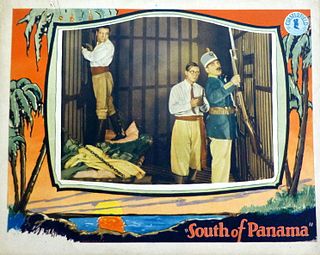 W
WEdward Raquello was a Polish-American actor of stage and screen. Although from Eastern Europe, he specialized in playing Latin Lover roles in Hollywood. He also performed frequently on the stage. For instance, in 1931, he was in the cast of Wonder Bar, headlined by Al Jolson. In 1932, he was in New York to Cherbourg at the Forrest Theatre, New York City. In 1933, he appeared with Rose Hobart and Humphrey Bogart at the Booth Theatre in the comedy, Our Wife. In June 1934, he co-starred with Betty Bronson in Genius in Love at the Elverhoj Theatre in Kingston, New York. In January 1935, he starred as Al Pomo, Public Enemy Number One, in Nowhere Bound, a melodrama about undesirable aliens on board a deportation train; written by Leo Birinski, it was presented at the Imperial Theatre in New York City. In 1936 and 1937, he was in the original production of Idiot's Delight with Alfred Lunt and Lynn Fontanne. In 1941, he was in the touring company of There Shall Be No Night, in a cast headed by Alfred Lunt and Lynn Fontanne. Following the end of the Second World War and through the 1960s, he was a program director and executive producer at the Voice of America radio for the United States Information Agency. Raquello emigrated to the United States in March 1926.
 W
WKazimierz Rudzki was a Polish stage and film actor, theatre director.
 W
WWitold Sadowy was a Polish film and theatre actor as well as publicist and columnist of the Gazeta Wyborcza daily and Życie na gorąco magazine.
 W
WBogusław Samborski was a Polish film actor. He appeared in more than 25 films between 1925 and 1947.Polish collaborator with Nazi Germany.
 W
WZbigniew Sawan was a Polish stage and film actor. He appeared in more than 25 films between 1928 and 1984. Studied directing in Państwowy Instytut Sztuki Teatralnej.
 W
WLudwik Sempoliński, real name Bohdan Kierski was a Polish film actor. He appeared in twenty films between 1935 and 1966.
 W
WCzesław Skonieczny was a Polish film actor. He appeared in more than 25 films between 1918 and 1941.
 W
WKrzysztof Stelmaszyk is a Polish film and television actor.
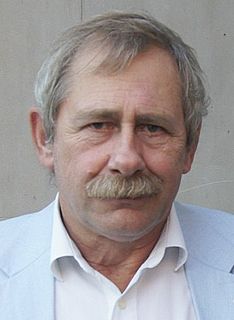 W
WAndrzej Tadeusz Strzelecki, was a Polish actor, satirist, theatre director, screenplay writer and rector of the Aleksander Zelwerowicz National Academy of Dramatic Art in Warsaw in the years 2008–2016.
 W
WKarol Juliusz "Igo" Sym was a Polish actor and collaborator with Nazi Germany. He was killed in Warsaw by members of the Polish resistance movement.
 W
WKonrad Tom, born Konrad Runowiecki, a Polish Jewish actor, writer, singer and director, born in Warsaw. Wrote song lyrics in Polish and in Yiddish for stage, film and cabaret, including szmonces. His wife was actress Zula Pogorzelska."Yiddish talkies were not only comparable to those of the Polish mainstream but were produced by the same people. The most successful Yiddish talkies were directed by established industry figures including Waszyński, Ford, Henryk Szaro, Jan Nowina-Przybylski, Leon Trystan, and Konrad Tom."
 W
WJerzy Turek was a Polish actor and performer. Turek was born on 17 January 1934 in the eastern village of Tchórzowa. He died on 14 February 2010 in Warsaw at the age of 76.
 W
WJonas Turkow was an actor, stage manager, director and writer. He received the Itzik Manger Prize for his contributions to Yiddish letters.
 W
WZygmunt Turkow was a Polish actor, director, playwright and director of Jewish origin from Warsaw, who became famous for roles in the pre-war Jewish films and stage plays in Yiddish. His brother, Jonas Turkow, was also a noted actor and stage manager.
 W
WWładysław Walter was a Polish film actor. He appeared in more than 30 films between 1918 and 1954.
 W
WPaweł Wawrzecki is a Polish actor and the son of Stanisław Wawrzecki. He left The Aleksander Zelwerowicz National Academy of Dramatic Art in Warsaw in 1975. He appeared in the television series Aby do świtu... in 1992. He has been the host of Koło Fortuny, the Polish version of Wheel of Fortune, since 1995.
 W
WJózef Wegrzyn (1884–1952) was a Polish film actor.
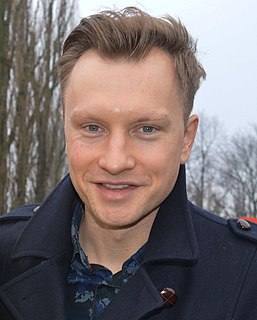 W
WJakub Wesołowski, also known as Kuba Wesołowski, is a Polish film, television and theatre actor as well as journalist.
 W
WAleksander Bożydar Żabczyński, was a Polish stage and movie actor, one of the most popular actors during the interwar period in Poland.
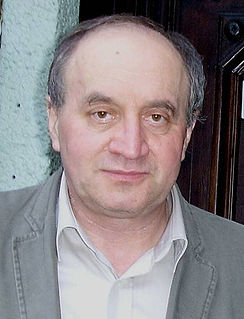 W
WKrzysztof Zaleski was a Polish theater director and cinema actor.
 W
WZbigniew Jan Zapasiewicz was one of the most prominent post-war Polish actors, as well as a theatre director and pedagogue.
 W
WWiktor Zborowski is a Polish actor. He is the nephew of actor Jan Kobuszewski. In 1973 he completed The Aleksander Zelwerowicz National Academy of Dramatic Art in Warsaw. He appeared in the comedy television series Bao-Bab, czyli zielono mi in 2003. He is also known for taking on the role of Longinus Podbipięta in the 1999 historical epic With Fire and Sword.
 W
WMichał Jan Żebrowski is a Polish actor and singer. He was the first actor to portray Geralt of Rivia in the movie The Hexer.
 W
WMichał Znicz (1888–1943) was a Polish stage and film actor.